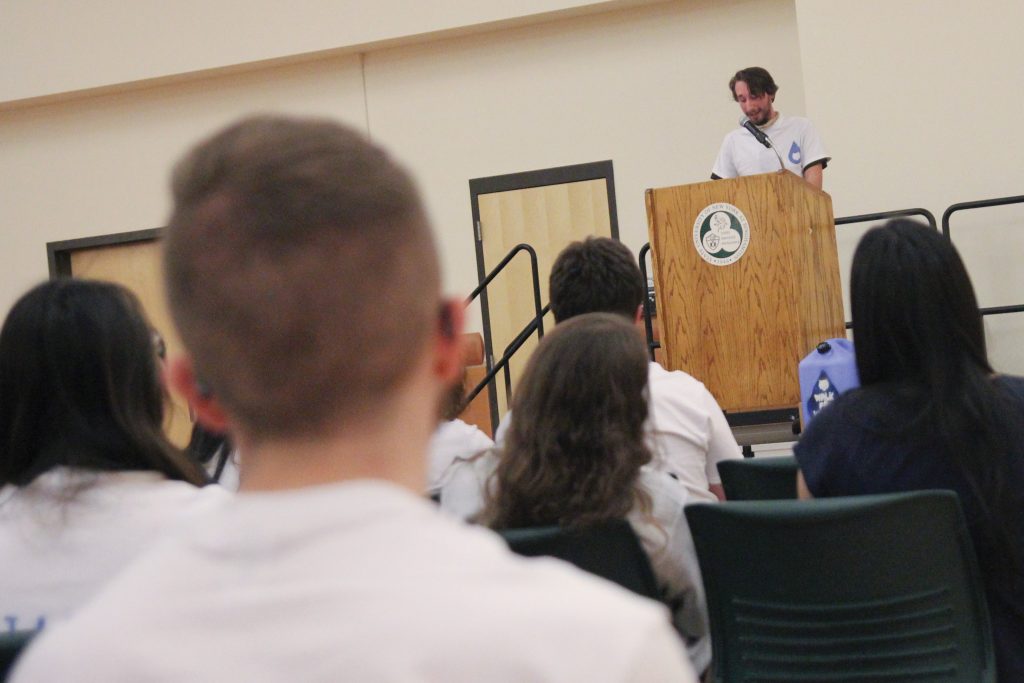
Every year, approximately 3.6 million people worldwide die from water-borne diseases. To bring awareness to this crisis, approximately 60 Binghamton University students, faculty members and community members came together at a “Talk for Water” workshop to learn about the importance of water and how to advocate for change.
The event, sponsored by Hinman College Council, was held in the Old University Union on Wednesday night. Last year’s event, titled “Walk for Water,” was organized in 2016 by Ryan Cadwell and Tina Lee, both former Hinman vice presidents of community service. Cadwell, a junior majoring in electrical engineering, and Lee, a senior majoring in integrative neuroscience, said they hoped to bring awareness to domestic and worldwide water issues. Lee said that the event was inspired by a conference in New York City.
“There was a speaker there from the Thirst Project, a youth water-activism organization, and he gave an amazing speech about why we should care about water and why it is vital to life,” Lee said. “That really made me passionate about the global water crisis and want to do something to help.”
This year, Lee and Cadwell partnered with BU organizations like Newing College Council, the Alpha Phi Omega service fraternity, New York Public Interest Research Group (NYPIRG), College Progressives, Engineering World Health, the Center for Civic Engagement, Circle K, Intellectual Decisions on Environmental Awareness Solutions and the Pre-Medical Association.
The event had multiple stations that provided information about water safety and activism. Some focused on actions attendees can take to conserve water, such as the dorm hacks station, which encouraged shorter showers and reusable water bottles.
Other stations, like the filtration technology station, concentrated on the dangers of water-related diseases and unclean water. Nikki Lupia-Eannace, a volunteer for Engineering World Health and a junior majoring in biomedical engineering, said the station offered important facts about unsafe water and offered possible solutions.
“A lot of water-safety efforts in developing countries are through boiling and other low-budget techniques,” Lupia-Eannace said. “Even if you take these precautions, there is still a chance of waterborne disease.”
The interactive workshop was accompanied by a presentation from Alex Bornemisza, vice chair of the NYPIRG board of directors and a project coordinator for the BU chapter of NYPIRG. He discussed his history as an activist, the dangers of fracking and the importance of the Environmental Protection Agency.
“I have been an advocate for water and the environment for several years,” Bornemisza said. “I understand the importance, now more than ever, of protecting water from outside forces, whether they be government, corporations or ourselves. Students are the ones who will be fighting these fights.”
Other attendees were surprised at the number of threats facing water, even in the United States. Christine Kearns, a senior majoring in psychology, said that she never really thought about water or how important it was to her life.
“It’s something that we take for granted, and there are so many different aspects of it,” Kearns said. “It’s something that impacts almost everything in our day-to-day lives.”


